Lawyer for Lebanon’s Raja Salameh, brother of Central Bank governor, says evidence in case against him is “media speculation without any evidence“-statement. Allegations of illicit enrichment and money laundering against Raja Salameh are absolutely unfounded, lawyer says in statement.

by reuters — BEIRUT — Raja Salameh, the brother of the head of Lebanon’s central bank, was arrested on Thursday following his interrogation at a court house east of Beirut, judge Ghada Aoun told Reuters. A judicial source separately said that Aoun had charged Salameh with “complicity in illicit enrichment” that also involved his brother, central bank governor Riad Salameh. Riad Salameh has not been charged with a crime and has denied all accusations against him. He did not immediately respond to a request for comment. Reuters could not immediately reach legal representatives for his brother for comment.
by arabnews.com — Najia Houssari — BEIRUT: A Lebanese judge has issued a travel ban against Creditbank Chairman Tarek Khalife and frozen the bank’s assets, including properties and vehicles, as part of an investigation into alleged money laundering. Mount Lebanon Public Prosecutor Judge Ghada Aoun issued the order after activists filed a lawsuit against several Lebanese banks. Creditbank is the sixth lender Aoun has taken action against after Bank of Beirut, SGBL, Bankmed, Bank Audi and Blom Bank. It is the second judicial measure taken within 24 hours against banks in Lebanon.
Earlier, Judge Miriana Anani, head of the Enforcement Department in Beirut, seized all the shares, properties and assets of one of Lebanon’s largest banks, Fransabank. The assets will be auctioned if the bank fails to return a deposit belonging to Ayad Garbawy Ibrahim, an Egyptian national who is among hundreds of depositors unable to access his funds at Fransabank. Ibrahim is taking legal action against the bank to recover the $35,000 he claims is owing. Judge Aoun on Thursday also issued an arrest warrant for Raja Salameh, brother of the governor of the central bank, Riad Salameh, following an investigation. The Pioneers of Truth activist group said that Salameh had been arrested on the basis of a complaint it filed 10 days ago accusing him of money laundering through fake companies.
The judicial proceedings have angered the banking sector, and the Association of Banks is expected to discuss strike action at a general assembly on Friday. Prime Minister Najib Mikati described the judges’ decisions as “arbitrary and irrational judicial proceedings.” “With all due respect to the judiciary, there is a general impression that some of what is happening does not conform with the judicial norms,” he said. “The rights of depositors are our priority. However, the exaggerated way through which the judicial rights and issues related to banks are being tackled is dangerous and could undermine the remaining confidence in the banking system.” Mikati said: “The depositors will, once again, pay the price, and I am afraid things will escalate if defects are not addressed.”

سجعان قزي
@AzziSejean
لا قيمةَ للديمقراطيّةِ على حسابِ الهُويّة الوطنيّة. ولا قيمةَ لأيِّ انتخاباتٍ ديمقراطيّةٍ إذا أدّت إلى نشوءِ ديكتاتوريّة. ولا قيمةَ للاستحقاقاتِ الدستوريّةِ إذا كانت تَصُبُّ في الانقلابِ على الدستور. وتاليًا لا يجوز الخجلُ من منعِ استغلالِ النظامِ الديمقراطيِّ وآليّاتِه ضِدَّ سيادةِ لبنان واستقلالِه وهُويّتِه اللبنانيّةِ الخاصّة. كنا ديمقراطيّين كفاية. في سياقِ هذا المنطقِ الوطنيِّ، نعتبرُ الانتخاباتِ النيابيّةَ المقرّرةَ في 15 أيّار المقبِل جَبهةَ نضالٍ لاستعادةِ لبنان لا استحقاقًا ديمقراطيًّا عاديًّا للاستيلاءِ على لبنان. إذا كان حزبُ الله يخوضُها كحربِ 2006، فواجبُنا أن نخوضَها كثورةِ 2005، ثورةِ الأرز.
من هنا، يَجدُر بالقِوى الاستقلاليّةِ، أكانت في الأحزابِ السياديّةِ أو في مجموعاتِ التغييِر الوطنيّة، أن تَنتصرَ في هذه الانتخاباتِ للتعويضِ عن فشلِها في “ثورة 17 تشرين”. تبدأُ ركائزُ فوزِ هذا “الثنائيِّ الاستقلاليّ” بتشكيلِ لوائحَ مشترَكةٍ، بسحبِ فائضِ المرشَّحين الساقطين سلفًا، بوضعِ برنامجٍ سياسيٍّ/إصلاحيٍّ موحَّدٍ، بدعوةِ الأممِ المتّحدةِ إلى مراقبةِ العمليّةِ الانتخابيّة، وبمناشَدةِ الدولِ العربيّةِ الصديقة، وفي طليعتِها السعوديّة، لوقفِ إضرابِـها عن لبنان. خِلافَ ذلك يَصعُبُ على “الثنائيِّ الاستقلاليِّ” أن يكونَ على موعدٍ مع النجاحِ في الانتخابات.
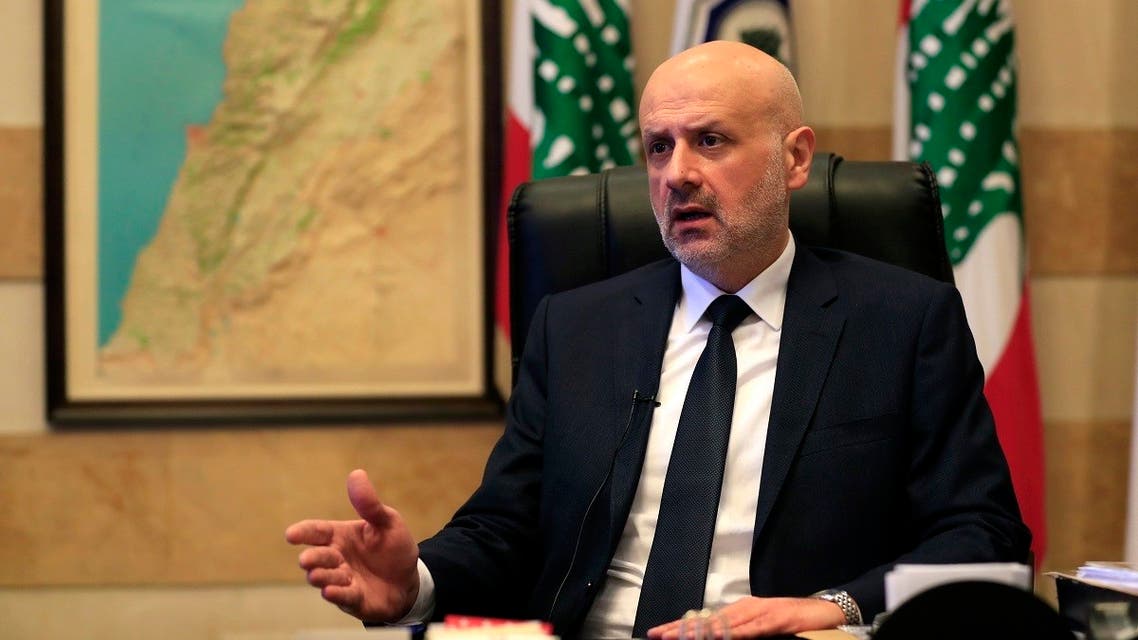
interior Minister Mawlawi
By Najia Houssari — arabnews.com — BEIRUT: The final number of candidates who will run for the May 15 Lebanese parliamentary elections is 1,043. The final total includes 155 women, 15 percent of the registered candidates. This is the highest number of candidates in Lebanese political history, with the number of candidates for one seat exceeding expectations in some electoral districts. In 2018, 976 candidates registered, including 111 women. The battle is being fought between the parties in power and the civil movement that accuses the authorities of corruption while opposing armed militias and what they call the Iranian occupation of Lebanon. The elected majority will form the new parliament that will elect the president who will rule the country in October. Opposition parties are hoping for urgent presidential reform after the reign of Michel Aoun, which has been filled with rivalries, political disputes and economic meltdown.
Candidates can finalize the electoral lists for each district until April 4, with the deadline for those who decide to withdraw their candidacy falling on March 30. They will not be permitted to withdraw their $1,500 deposit. The number of candidates expected to run on election day is anticipated to be halved due to the inability of everyone to join lists. Lebanese Interior Minister Bassam Mawlawi said: “As the government promised, it is ready to hold the elections, and citizens must go to cast their votes, following their interests in a real homeland.” He called on the local and international community to participate in monitoring the polls to “ensure their transparency and integrity and the total impartiality of the government.” He said there are no “logistical obstacles” and that the government is working toward fulfilling all electoral needs. The current candidates are distinguished by the strong presence of lawyers, most notably the previous head of the Beirut Bar Association Melhem Khalaf, one of the activists in the civil movement, in addition to several media professionals.

interior Minister Mawlawi
By Najia Houssari — arabnews.com — BEIRUT: The final number of candidates who will run for the May 15 Lebanese parliamentary elections is 1,043. The final total includes 155 women, 15 percent of the registered candidates. This is the highest number of candidates in Lebanese political history, with the number of candidates for one seat exceeding expectations in some electoral districts. In 2018, 976 candidates registered, including 111 women. The battle is being fought between the parties in power and the civil movement that accuses the authorities of corruption while opposing armed militias and what they call the Iranian occupation of Lebanon. The elected majority will form the new parliament that will elect the president who will rule the country in October. Opposition parties are hoping for urgent presidential reform after the reign of Michel Aoun, which has been filled with rivalries, political disputes and economic meltdown.
Candidates can finalize the electoral lists for each district until April 4, with the deadline for those who decide to withdraw their candidacy falling on March 30. They will not be permitted to withdraw their $1,500 deposit. The number of candidates expected to run on election day is anticipated to be halved due to the inability of everyone to join lists. Lebanese Interior Minister Bassam Mawlawi said: “As the government promised, it is ready to hold the elections, and citizens must go to cast their votes, following their interests in a real homeland.” He called on the local and international community to participate in monitoring the polls to “ensure their transparency and integrity and the total impartiality of the government.” He said there are no “logistical obstacles” and that the government is working toward fulfilling all electoral needs. The current candidates are distinguished by the strong presence of lawyers, most notably the previous head of the Beirut Bar Association Melhem Khalaf, one of the activists in the civil movement, in addition to several media professionals.
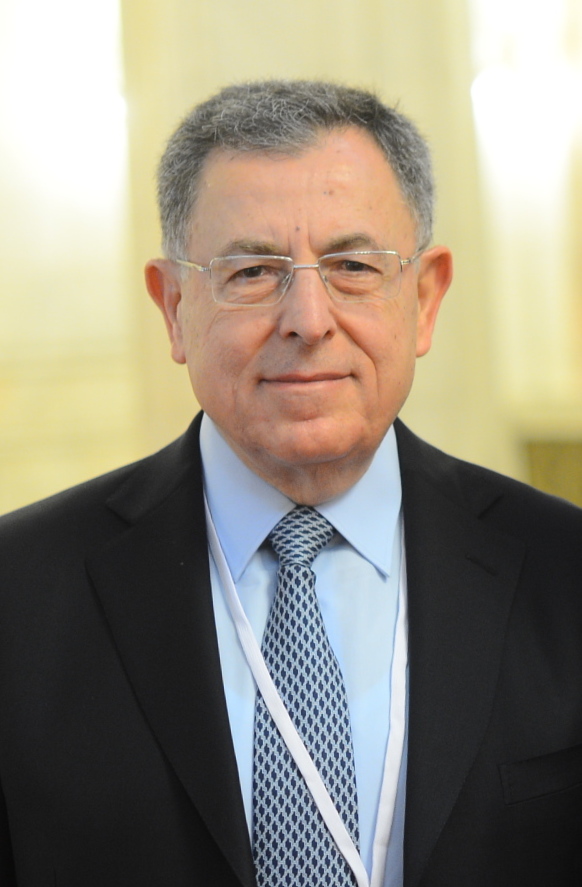
by arabnews.com — Najia Houssari — BEIRUT: With the candidacy deadline for the Lebanese parliamentary elections ending on Tuesday at midnight, over 875 applications had been submitted as of Tuesday afternoon. Lebanese Interior Minister Bassam Mawlawi said that work is underway “to secure IDs and personal status extracts, and all other voter needs. “We are working to secure electricity during the voting process and until the sorting of ballots ends.” The elections are scheduled to be held on May 15 amid a severe economic collapse that Lebanon has been enduring for two years and the possibility of the country slipping into further deterioration in the coming months. According to Mawlawi, 7,000 polling stations will be allocated throughout Lebanon. Meanwhile, Fouad Siniora has become the latest former premier to announce that he will not be running in the elections.
In January, former premier Saad Hariri announced his withdrawal from political life, expressing his conviction that “there is no room for any positive opportunity for Lebanon in light of the Iranian influence, international confusion, national division, rise of sectarian tensions, and the deterioration of the state.” Hariri had also instructed members of the Future Movement, which he heads, to not contest the elections under the movement’s name, but he did not call on his supporters to boycott them. Former premier Tammam Salam and the current Prime Minister Najib Mikati also announced that they will not stand along with Lebanon’s former ambassador to the UN, Nawaf Salam, who is currently a permanent member of the International Court of Justice in The Hague. Siniora told a press conference: “My decision not to run for the elections does not mean that I will be boycotting; on the contrary, I hope my position makes room for the new generation. I will be fully invested in the elections in all their aspects, without running for office.” He urged citizens to turn out to vote “so as not to allow opportunists to gain ground amid calls not to participate in this national duty.”
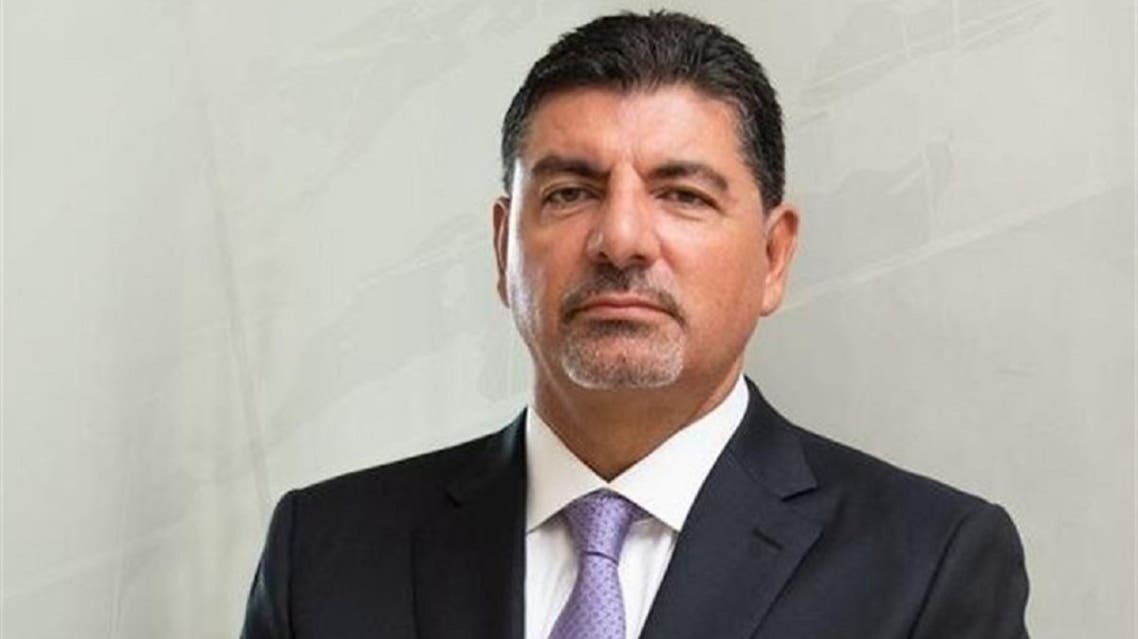
By Bahaa Hariri — arabnews.com — Russia’s decision to invade Ukraine will have ramifications that reverberate around the world for years to come. In the West, the immediate concern remains the invasion’s impact on the oil and gas markets. Yet, in countries like Lebanon, with just six weeks to two months of wheat reserves, the war’s impact on agricultural supply chains could well be the straw that finally breaks the camel’s back. With an economy struggling due to the impacts of decades of corruption, a financial crisis and COVID-19, the upcoming parliamentary elections have never been so important. My fellow Lebanese face a bleak future, with no jobs for workers, no fuel at the gas stations and food at record prices. Children are already going hungry up and down the country and, should the crisis in Ukraine continue, food prices will only skyrocket further. Given Lebanon imports more than 60 percent of its wheat from Ukraine, the situation has the potential to escalate at a frightening pace.
The elections in May remain the last chance Lebanon has to vote for a government that is willing to implement concrete policies to ease the pain of our people. Inaction or maintaining the status quo is not an option. As long as the people of Lebanon allow sectarian politics to continue, the country will be subject to manipulation, political interference and attempts to cause more chaos from the outside as well as from the political elites within. Unfortunately, the political establishment in Lebanon has closed ranks, determined to maintain its tenuous grip on power, and there is worrying speculation that the elections could be delayed. Unhelpfully, whereas the US and EU had been applying pressure on Lebanon to hold these elections, another side effect of the crisis in Ukraine is that their attention could be elsewhere.
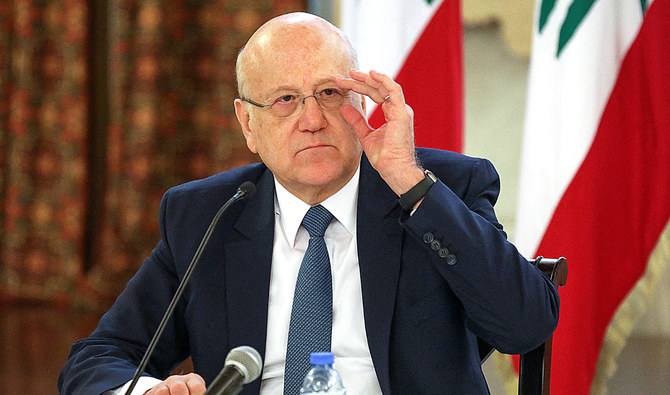
By Mina Aldroubi — thenationalnews.com — Lebanon’s Prime Minister Najib Mikati will not run for re-election, he said on Monday. Nationwide elections are planned on May 15 after two years of economic collapse in the country. “I believe in the inevitability of change, and the need to make room for the new generation to have its say through the upcoming parliamentary elections. I announce my decision to refrain from running,” he said. “Our government has pledged to hold elections on their set date on May 15, 2022 – with utmost integrity and transparency – and to provide all the required means for their success,” he said.
Will Lebanon’s elections go ahead? He also vowed to address the economic, financial, and social problems facing his country. “We will place our country on the path of recovery with the help and support of all of Lebanon’s friends and brothers, and in co-operation with the International Monetary Fund, the World Bank and international organisations affiliated with the United Nations,” he said. He called on all politicians who want to stand for election to submit their papers for before the candidacy deadline. “Parliamentary elections constitute an essential junction in the course of parliamentary activity that characterises Lebanon. Amid this delicate stage that our country endures, the overwhelming majority of the Lebanese views legislative elections as a necessary passage to move Lebanon from one stage to another and to renew the country’s political life in an advanced way,” Mr Mikati said. He encouraged the public to “practise their right to vote” as “changes begin at the ballot boxes”.
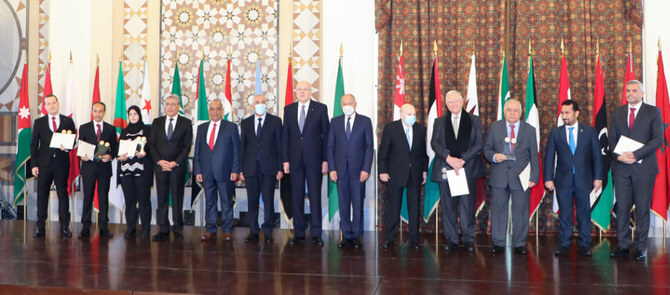
By Najia Houssari — arabnews.com — BEIRUT: Arab League Secretary-General Ahmed Aboul Gheit has announced that his organization is ready to send a team to Lebanon to monitor the parliamentary elections scheduled for May 15. “The Arab League has done this in Algeria, Iraq, Palestine, and many regions, and I think we will implement this in Lebanon,” he said. Aboul Gheit visited Lebanon on Monday as part of the arrangements for holding the Arab summit in Algeria on Nov. 1 and 2. Lebanese President Michel Aoun met with Aboul Gheit and assured him that the elections will take place on time. According to Aoun’s media office, he welcomed the idea of an Arab League team monitoring the elections. With the candidacy deadline ending Tuesday midnight, the electoral competition has intensified between the large blocs who have started to announce their candidates. The number of newly registered candidates jumped to nearly 600 by Monday noon.
Sectarian polarization has started to trickle into electoral campaigns. Some parties, especially Hezbollah and its allies, have attacked foreign parties and their role in these pivotal elections. Parties will be desperate for votes as the new parliament will elect the next Lebanese president in October. As the political jostling heated up, former Prime Minister Fouad Siniora expressed a glum view about the future of the country.
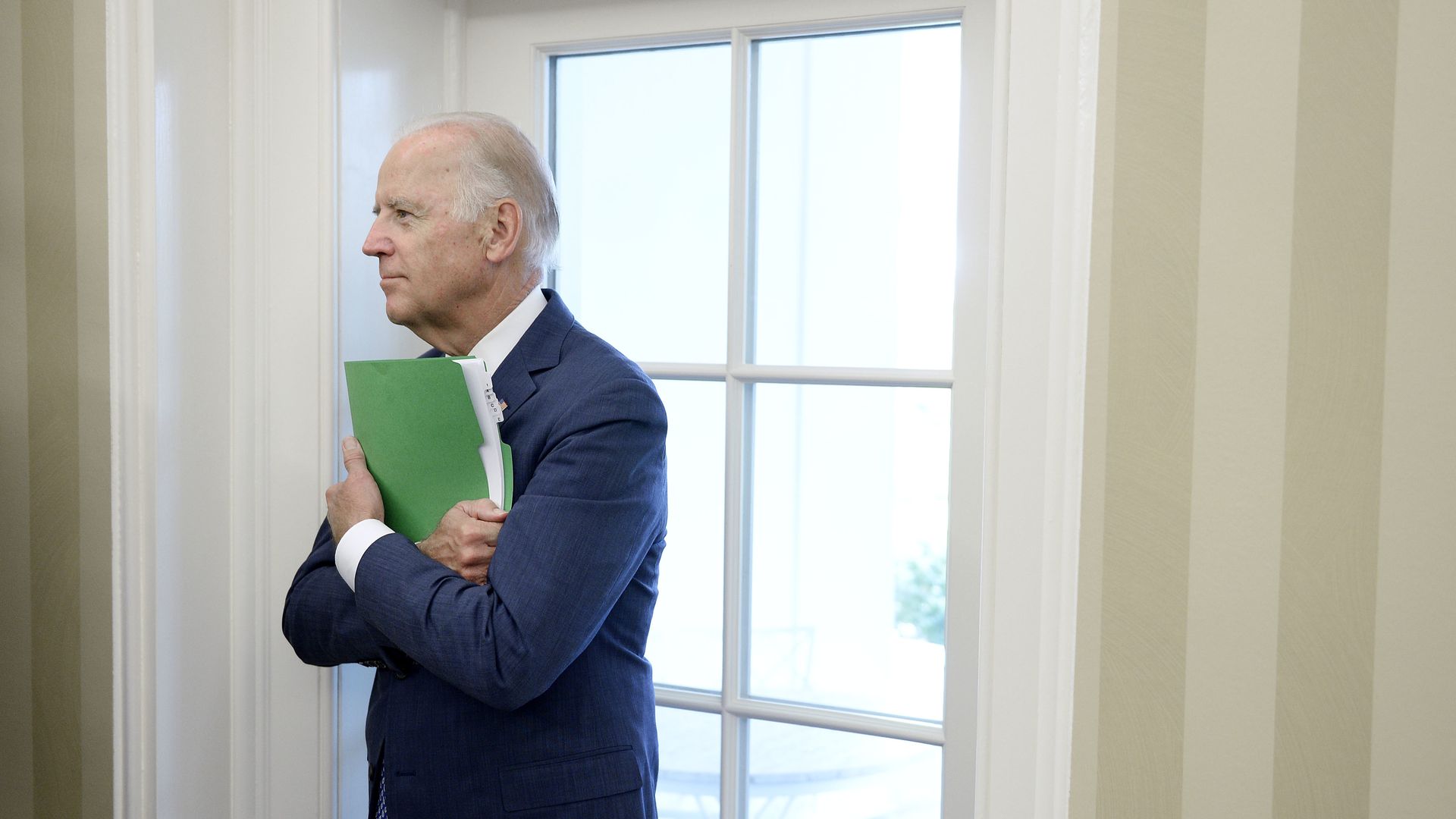
by theguardian.com — Martin Chulov and Julian Borger — Joe Biden’s hardline stance on Russia has won him widespread plaudits, but with the most serious oil shock in decades now a reality, the US president’s attempt to cushion the blowback continues to meet resistance from the two allies he needs most. Saudi Arabia’s de facto leader, Mohammed bin Salman, and his counterpart in the United Arab Emirates, Mohammed bin Zayed, are yet to agree to a phone call with the west’s most powerful man – a scenario all but unthinkable during previous administrations. Biden’s immediate priority is for both countries to help exert maximum economic pressure on Russia by cranking up their oil output. Each capital is a major supplier of oil, with excess capacity, which would soften the effect on US consumers through fuel prices before midterm elections in November that threaten Democratic control of Congress.
With relations between the Middle East oil powers and Washington at their lowest in modern times, though, a reckoning is due that may realign the regional order on terms that favour Riyadh and Abu Dhabi. Both leaders have made it clear that they will settle for nothing less, and are ready to extract their price. As if to show the Biden administration what it could do, the UAE ambassador to Washington, Yousef al-Otaiba, last Wednesday said it favoured production increases “and will be encouraging Opec to consider higher production levels”, leading oil prices to fall by 13% the next day. But no action to increase supply followed and by the week’s end the price per barrel was back up to almost $130 (£100), an uncomfortably high level for Biden to take to the midterms. However, the standoff involves far more than oil. In Riyadh, Prince Mohammed feels snubbed by Biden’s refusal to engage with him ever since he took office. The murder of the Saudi dissident Jamal Khashoggi by the crown prince’s security aides, the war on Yemen, the jailing of rights activists and the boycott of Qatar have made him a pariah to the administration.



